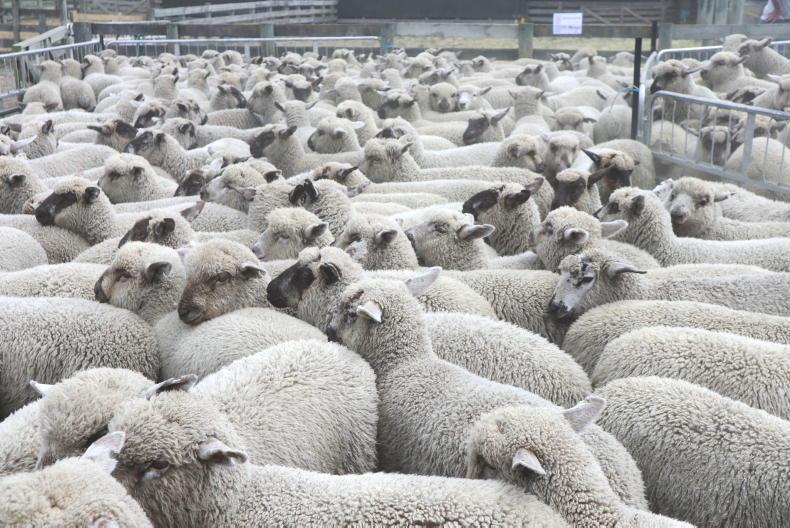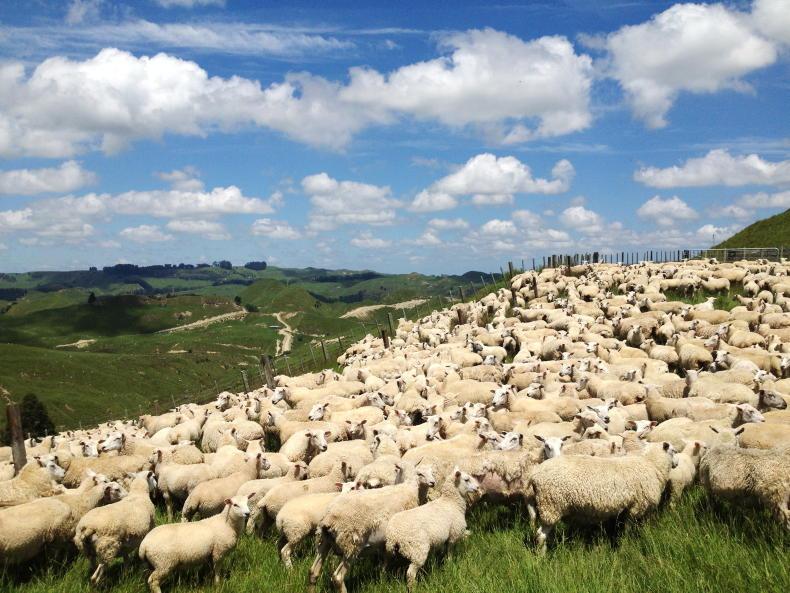Sheep numbers in New Zealand continue to drop, according to Statistics New Zealand (NZ Stats), the equivalent of Ireland’s Central Statistics Office (CSO).
According to its latest analysis, there were 25.33m sheep in New Zealand as of June 2022, down 8% from the 27.53m in 2017 and 33% from the country’s much higher 39.57m sheep in 2002, two decades ago.
The important player in global sheepmeat markets has seen its national flock continue to decline since 2006, when sheep numbers broke 40m.
The ratio of sheep to people in New Zealand has also dropped below five to one for the first time since the 1850s.
Breeding ewes
A potential indicator of a further decline in New Zealand’s national flock, there was almost 13% fewer mature ewes put to the ram last year, at 15.48m, down from the 17.26m in 2017.
The number of hoggets put to the ram also reduced, with 1.83m bred in 2022, down almost 8% from the 1.98m bred in 2017.
While the decline in sheep numbers in New Zealand has been seen across both North Island and South Island, it was slightly more evident on North Island.

The ratio of sheep to people in New Zealand has also dropped below five to one for the first time since the 1850s.
Comparing total sheep numbers in 2022 with those in 2017, there were 14% fewer mature ewes bred on North Island, compared with 11.5% fewer on South Island.
Overall, total sheep numbers on North Island were down 9.5% over the five years and 6.4% on South Island.
Included in the analysis for South Island, the Chatham Islands, off New Zealand, saw its sheep numbers decrease by over 27%.
Data
Statistics New Zealand is the public service department of New Zealand charged with the collection of statistics related to the economy, population and society of New Zealand.
The final overall response rate it secured for its agricultural production census 2022 was 73%. This was a lower response rate compared with the 2017 census, which had a response of 84%.
The department’s data analysis concluded that the lower response rate did not significantly impact the quality of the statistics produced.
Read more
UK finalises trade deals with Australia and NZ
Sheep numbers in New Zealand continue to drop, according to Statistics New Zealand (NZ Stats), the equivalent of Ireland’s Central Statistics Office (CSO).
According to its latest analysis, there were 25.33m sheep in New Zealand as of June 2022, down 8% from the 27.53m in 2017 and 33% from the country’s much higher 39.57m sheep in 2002, two decades ago.
The important player in global sheepmeat markets has seen its national flock continue to decline since 2006, when sheep numbers broke 40m.
The ratio of sheep to people in New Zealand has also dropped below five to one for the first time since the 1850s.
Breeding ewes
A potential indicator of a further decline in New Zealand’s national flock, there was almost 13% fewer mature ewes put to the ram last year, at 15.48m, down from the 17.26m in 2017.
The number of hoggets put to the ram also reduced, with 1.83m bred in 2022, down almost 8% from the 1.98m bred in 2017.
While the decline in sheep numbers in New Zealand has been seen across both North Island and South Island, it was slightly more evident on North Island.

The ratio of sheep to people in New Zealand has also dropped below five to one for the first time since the 1850s.
Comparing total sheep numbers in 2022 with those in 2017, there were 14% fewer mature ewes bred on North Island, compared with 11.5% fewer on South Island.
Overall, total sheep numbers on North Island were down 9.5% over the five years and 6.4% on South Island.
Included in the analysis for South Island, the Chatham Islands, off New Zealand, saw its sheep numbers decrease by over 27%.
Data
Statistics New Zealand is the public service department of New Zealand charged with the collection of statistics related to the economy, population and society of New Zealand.
The final overall response rate it secured for its agricultural production census 2022 was 73%. This was a lower response rate compared with the 2017 census, which had a response of 84%.
The department’s data analysis concluded that the lower response rate did not significantly impact the quality of the statistics produced.
Read more
UK finalises trade deals with Australia and NZ











SHARING OPTIONS